Our EDI Committee is comprised of students, faculty, researchers and staff who care deeply about making our department a welcome, supportive, and inclusive community. Our current committee is made up of the following members, with several subcommittees working on focused initiatives.
Meet the Team
Faculty & Staff
Rick Marta || Chair
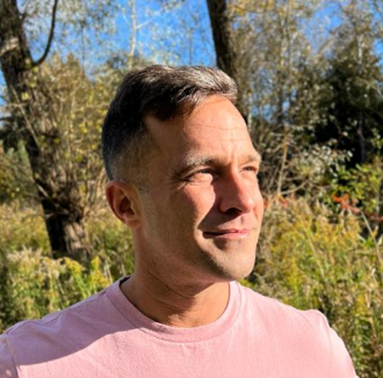
Rick (he/him) is a continuing lecturer and Materials and Nanosciences (MNS) academic advisor for the Departments Physics and Astronomy and Chemistry. He is a passionate and enthusiastic teacher who strives for his students’ success. He implements the use of technologies in his classes and provides extensive online support materials to his students. He travels yearly to Beijing, China, to teach students at the UW partner university, Beijing Jiaotong University (BJTU). Rick believes that the classroom should be an inclusive, welcoming, and empowering environment, in which all students feel like they belong.
Maya El-Baltaji || Staff Coordinator

Maya (she/her) is an undergraduate Advisor and Operations Coordinator. She joined the department in Jan 2023. Her main objective is to support students and ensure they are meeting their goals throughout their time at UWaterloo. As a former international student herself she recognizes the challenges that they face. She has an open-door policy and students are encouraged to come by whenever needed.
Melanie Campbell || Faculty Representative
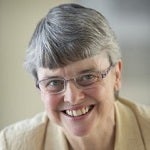
Melanie (she/her) leads a highly multidisciplinary research group where they study ocular development, eye disease, and linear and non-linear optics of the eye. They investigate the fundamental refractive properties of the eye's components to improve diagnosis and therapy for various ocular conditions.
Alan Jamison || Faculty Representative
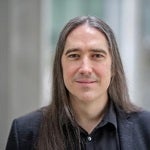
Alan’s (he/him) group uses lasers to cool atoms to within a few billionths of a degree of absolute zero, making the coldest systems in the known universe. At these temperatures, atoms can be made to mimic interesting quantum systems from condensed matter, nuclear, and high-energy particle physics. We can also use light to drive chemical reactions that form molecules at similarly low temperatures. These ultracold molecules are a great resource for studying quantum chemistry and quantum information.
Qing-Bin Lu || Faculty Representative
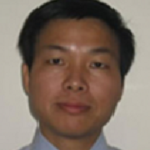
Qing-Bin’s (he/him) research programs cross disciplines in physics, chemistry, environment, climate, biology, and medicine, particularly focusing on femtomedicine and cancer therapy, as well as the sciences of atmospheric ozone depletion (the ozone hole) and global climate change (“global warming”).
Christine Muschik || Faculty Representative

Christine (she/her) is an expert in the theory of quantum communication and quantum simulation. Quantum communication exploits the features of quantum mechanical systems for advantages in communication tasks, such as unbreakable security or significant reductions in the resources required to send a message. Quantum simulation uses one type of quantum system, over which one has complete control, to mimic the behaviour of another, where control is limited or nonexistent. Quantum simulation has the potential to guide the development of new materials or complex molecules and expand our understanding of fundamental physics.
Taylor Pacholko || Staff Representative

Taylor (They/Them) is the Physics and Astronomy Outreach Coordinator and Classroom Demonstrator. They joined the department in May of 2023 and look forward to providing supplements to the Physics education at the University. As a member of the LGBTQ+ community, they are enthusiastic about EDI initiatives and are looking forward to using their skills and knowledge to better EDI projects throughout the department. They believe that anyone can study Physics, and that learning should be inclusive to everyone. They welcome anyone to stop by their office to chat about EDI, Physics, or anything else.
Meg Ward || Faculty Representative
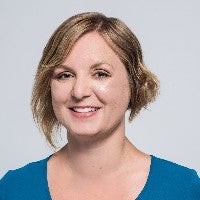
.
.
.
.
Undergraduate & Graduate Students
The EDI committee does not currently have any Graduate or Undergraduate students on the committee. In the past there have been representatives from different Physics clubs on campus in addition to unaffiliated Graduate and Undergraduate students. If you are interested in the committee please follow the contact information below.
- Graduate Student - N/A
- Graduate Student - N/A
- Undergraduate Student - N/A (PhysClub)
- Undergraduate Student - N/A
- Undergraduate Student - N/A (SciSoc)
- Undergraduate Student - N/A (FemPhys)
Contact Us
You can reach us directly at physastroedi@uwaterloo.ca with your questions, comments and concerns and we will respond as soon as possible.